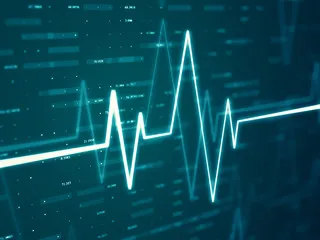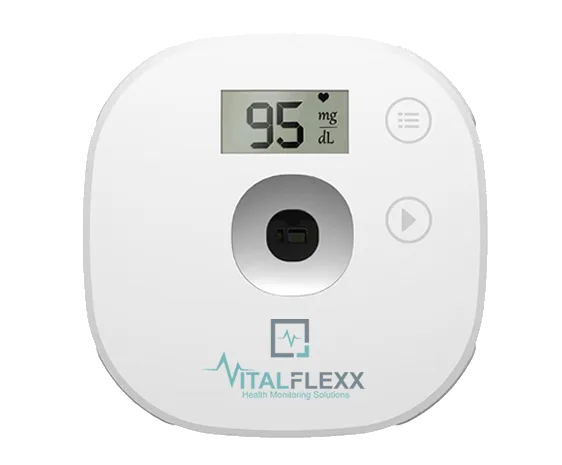Join Our Blog!
Sign up below to get the latest from our Blog and Newsfeed!

What Can a Regular Checkup of Your ECG Indicate About Your Health?
What Can a Regular Checkup of Your ECG Indicate About Your health?
Introduction
In this fast-paced world, people have become busy with no time to spare for their health. Most of what happens inside their bodies cannot be seen but only felt once the damage cannot be reversed. The same is said for heart health. Our heart is one of the essential organs to help us stay alive. Compromise on its working can impact the whole body, resulting in a decreased quality of life and life expectancy. Cardiovascular events are the number one cause of death worldwide; therefore, checking the heart and its functioning before things get worse is essential.
One of the best ways to screen your heart for any significant abnormal changes is the ECG. It is a noninvasive test that does not require a lot of prerequisites and generates results within minutes. Therefore, an ECG is a helpful marker in assessing heart health, especially for individuals who have crossed their 40s.
What is an ECG?
An ECG stands for an 'Electrocardiogram.' It shows the electrical activity of the heart. Many leads are attached to the body and help attain signals from all sides of the heart. Therefore, pathology from any structure can easily be identified and detected through the ECG.
An ECG is usually the first step in diagnosing and investigating cardiac issues. However, many other causes can also be detected through an ECG, such as electrolyte imbalances, trauma to the heart, or pulmonary embolism. Hence, changes in an ECG can be helpful for the detection of various medical conditions. [1]
Who should get an ECG?
ECG is the first line of investigation for anyone who comes to the hospital with the following complaints;
Dizziness
Shortness of breath
Hypertension
Chest pain
Loss of consciousness
Seizures [2]
These are all emergency cases where getting an ECG can be life-saving as it is essential to rule out the cardiac cause that could be causing these symptoms.
Moreover, individuals falling in the following categories must get their ECG done for regular checkups or heart health screening. These include;
Individuals with any congenital disability.
Individuals above the age of 40.
Individuals with any metabolic disorder, like hypertension or diabetes.
Individuals with a previous history of a cardiac event or stroke.
It is imperative to get an ECG done every three months after age 40 to screen for any cardiac problems. [3]
What can the ECG tell about heart health?
ECG might seem like a small test that does not require blood work, but it has a lot of significance in the medical world. For example, a previous ECG strip can sometimes become the best clue for diagnosing people with sudden chest pain and shortness of breath in the ER.
All that can be detected through an ECG is as follows;
The rate at which the heart is beating, which can either be very fast (tachycardia) or very slow (bradycardia)
The rhythm of the heart
Presence of any ischemia, which is low blood oxygen reaching the cells of the heart
Increase in the size of the heart, also known as hypertrophy of the heart
The presence of irregular beats, also known as arrhythmias, can cause strokes if not corrected
Any sign of an old infarct or a current one
Presence of any valve deformity
Working any pacemaker by checking if the rhythm being generated is proper or not
Rheumatic heart disease is an infective condition and can be fatal if not treated quickly [9]
Evaluation of metabolic disorders such as hypertension and diabetes that can do a lot of damage to the heart
It can also detect changes in the heart due to lung problems such as COPD (Chronic Obstructive Pulmonary Disease)
Electrolyte imbalances, such as decreased or increased levels of potassium, calcium, or magnesium
Congenital disabilities are also detected through an ECG, which forms a basis for performing further tests. [4] [5]
Conclusion
Health should always be the number one priority of all individuals. Unfortunately, many people stay so busy with work they need to remember to take care of their bodies. After a certain age, their body starts breaking down without them realizing it. That slows their progress and makes them devoid of all the beautiful things life has to offer.
According to statistics, over 64 million people suffer from heart failure globally. Unfortunately, many stay clueless about their heart condition until it is too late. The best way to keep on top of your health is by getting yourself screened once every three months.
ECG is one of the first-line screening tests performed to rule out any cardiac abnormality. Any person with a complaint of shortness of breath, excessive sweating, hypotension, hypertension, or chest pain must get an ECG performed. This can significantly decrease mortality and improve the morbidity of the patient.
Therefore, after reaching their forties, all individuals should get their ECG done to get themselves screened for various heart problems. It is also essential to help distinguish between cardiac with non-cardiac causes based on the symptoms. For example, a person with shortness of breath might have a normal ECG, indicating pulmonary reasons like Asthma, etc. Therefore, this noninvasive test can go a long way in efficiently detecting heart problems.
Moreover, early diagnosis of any cardiac abnormality results in early interventions, ultimately improving that individual's life expectancy.
The VitalFlexx™ 6-in-1 Health Monitor is a standard one-lead ECG, that can help indicate basic issues related to the heart. For more advanced diagnosis referenced in this article, your doctor may prescribe additional equipment that such as a 12 lead ECG.
You can keep track of all of your ECG readings and keep your doctors or family automatically informed with the VitalFlexx™ 6-in-1 Health Monitor.
https://healthflexxinc.com/vitalflexx6in1

References
Electrocardiogram. Electrocardiogram | Johns Hopkins Medicine. (2021, August 8). Retrieved December 27, 2022, from https://www.hopkinsmedicine.org/health/treatment-tests-and-therapies/electrocardiogram
Mayo Foundation for Medical Education and Research. (2022, March 19). Electrocardiogram (ECG or EKG). Mayo Clinic. Retrieved December 27, 2022, from https://www.mayoclinic.org/tests-procedures/ekg/about/pac-20384983
Gouda P, Brown P, Rowe BH, McAlister FA, Ezekowitz JA. Insights into the importance of the electrocardiogram in patients with acute heart failure. European Journal of Heart Failure. 2016 Aug;18(8):1032-40.
Sattar Y, Chhabra L. Electrocardiogram. InStatPearls [Internet] 2022 Jun 13. StatPearls Publishing.
Becher PM, Lund LH, Coats AJ, Savarese G. An update on global epidemiology in heart failure. European Heart Journal. 2022 May 17.

Sign Up for Our Newsletter!
How can your Innovative Healthcare products assist in your remote patient monitoring, point of care, or chronic care management programs?
NAVIGATION
SOCIAL
HEADQUARTERS (US)
HEALTHFLEXX, Inc
607 W 77th St South Dr
Indianapolis, IN 46260
P: 888.243.9102
E: support@healthflexxinc.com
All Rights Reserved 2026. HEALTHFLEXX, Inc

LinkedIn
Youtube